Презентація на тему «Ancient Rome»
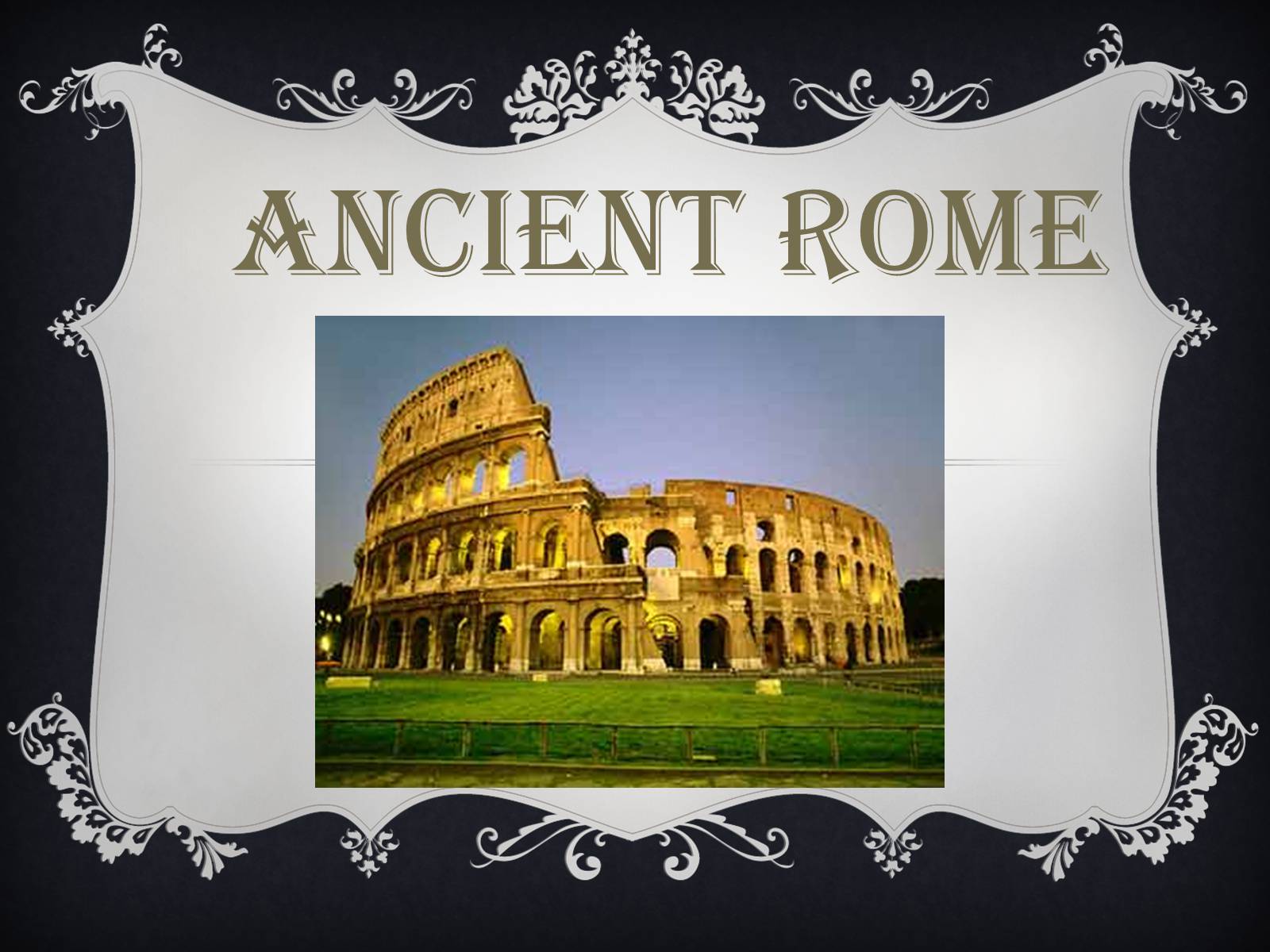
Ancient Rome
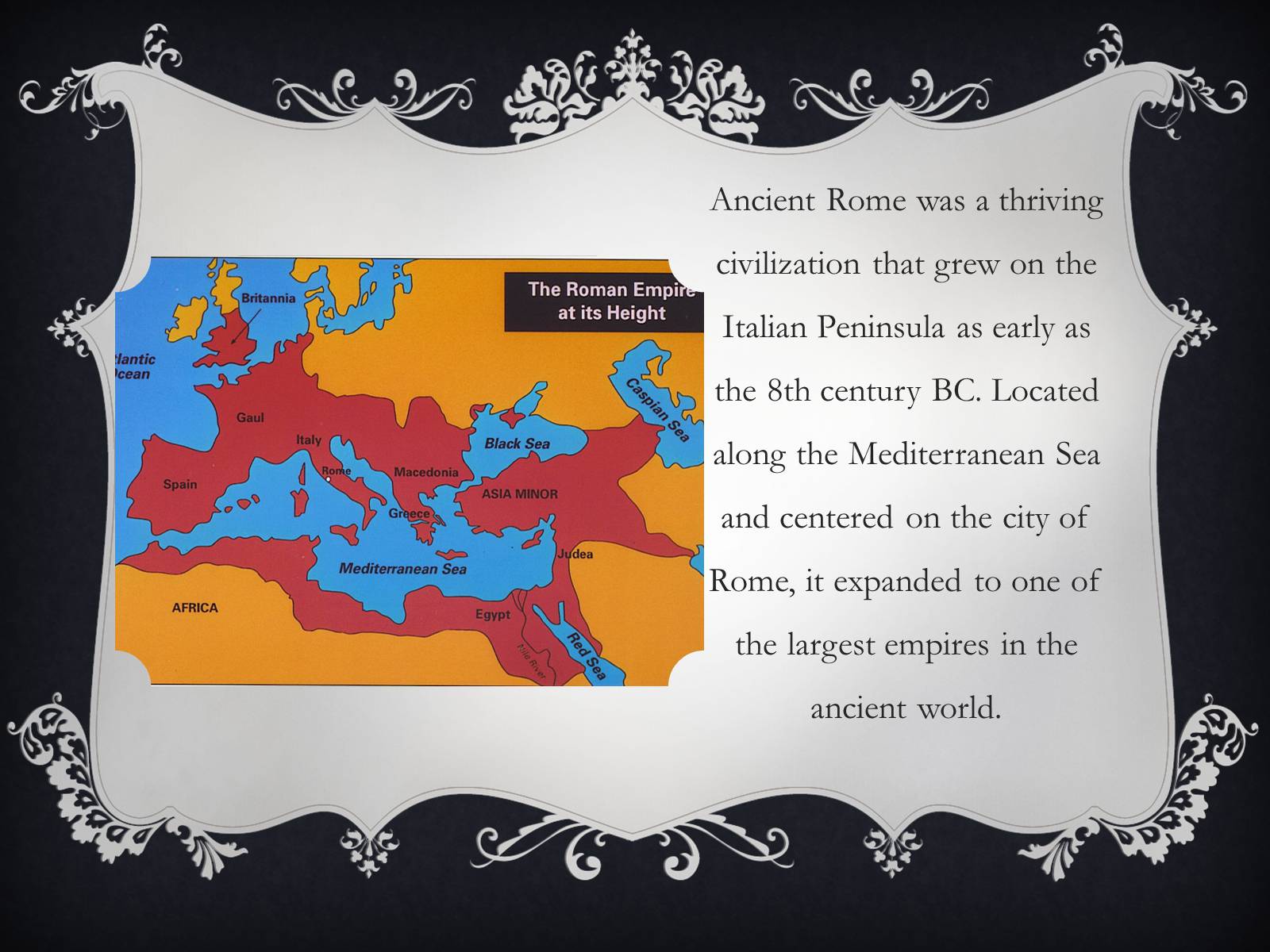
Ancient Rome was a thriving civilization that grew on the Italian Peninsula as early as the 8th century BC. Located along the Mediterranean Sea and centered on the city of Rome, it expanded to one of the largest empires in the ancient world.
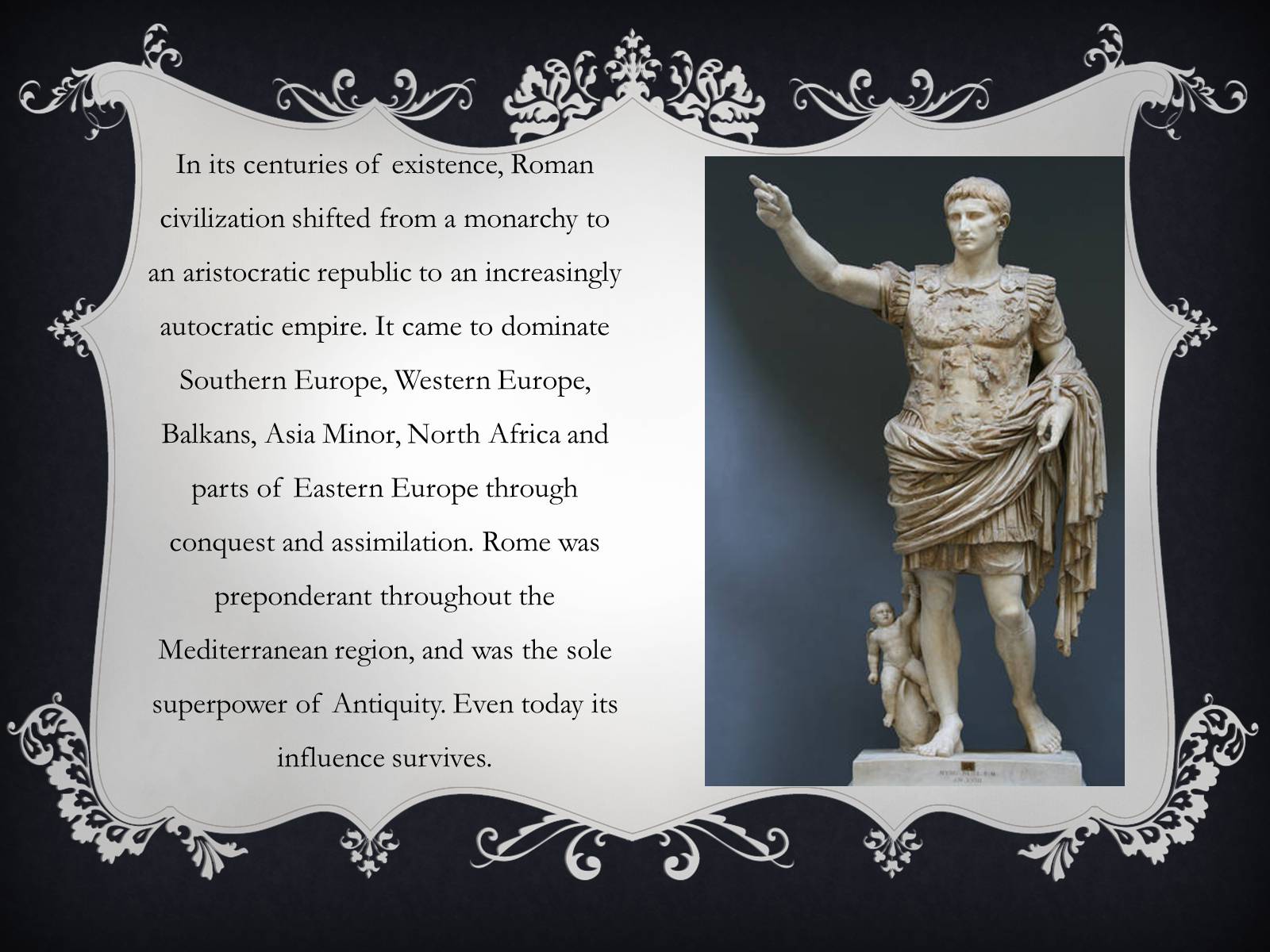
In its centuries of existence, Roman civilization shifted from a monarchy to an aristocratic republic to an increasingly autocratic empire. It came to dominate Southern Europe, Western Europe, Balkans, Asia Minor, North Africa and parts of Eastern Europe through conquest and assimilation. Rome was preponderant throughout the Mediterranean region, and was the sole superpower of Antiquity. Even today its influence survives.
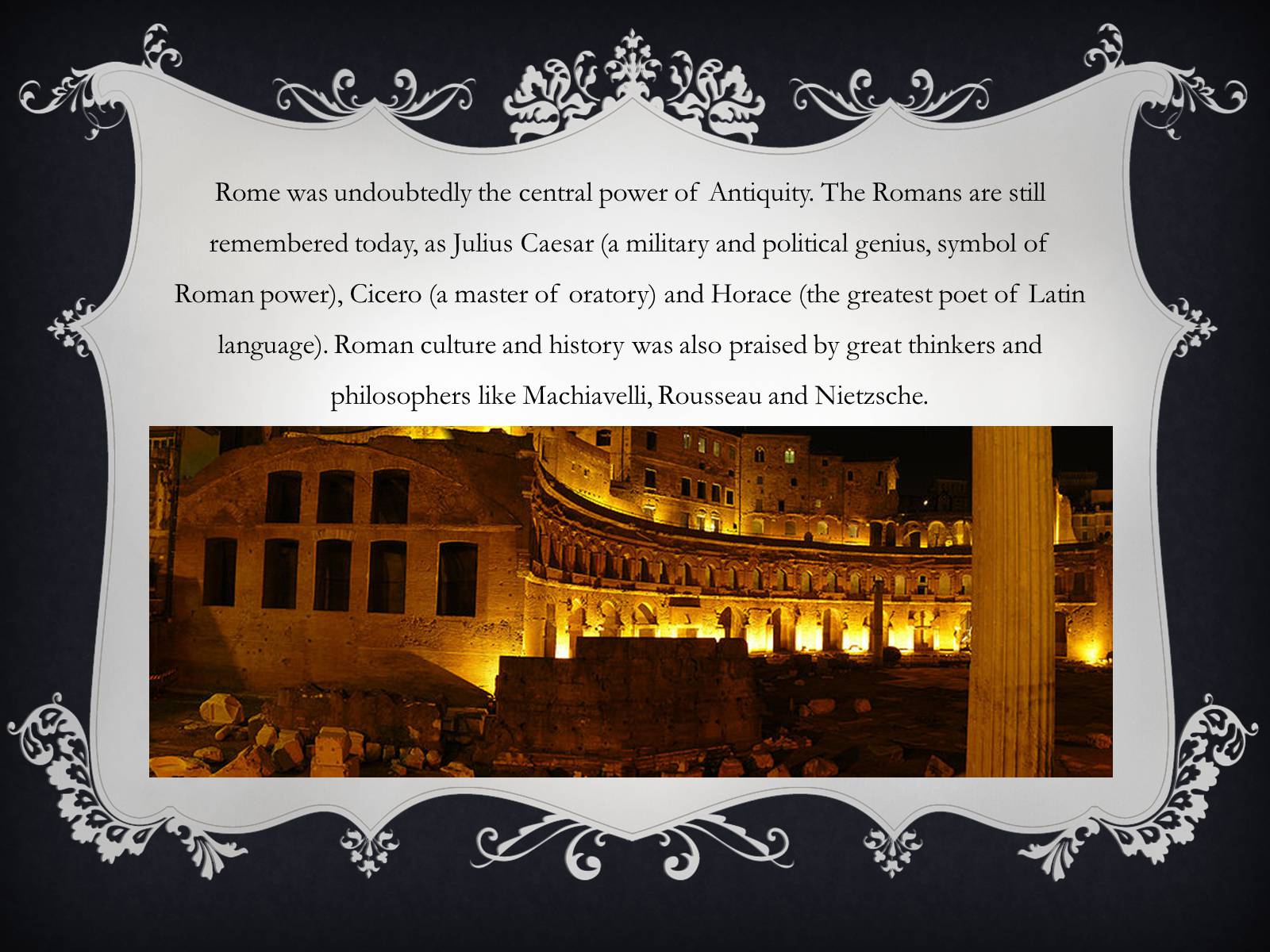
Rome was undoubtedly the central power of Antiquity. The Romans are still remembered today, as Julius Caesar (a military and political genius, symbol of Roman power), Cicero (a master of oratory) and Horace (the greatest poet of Latin language). Roman culture and history was also praised by great thinkers and philosophers like Machiavelli, Rousseau and Nietzsche.
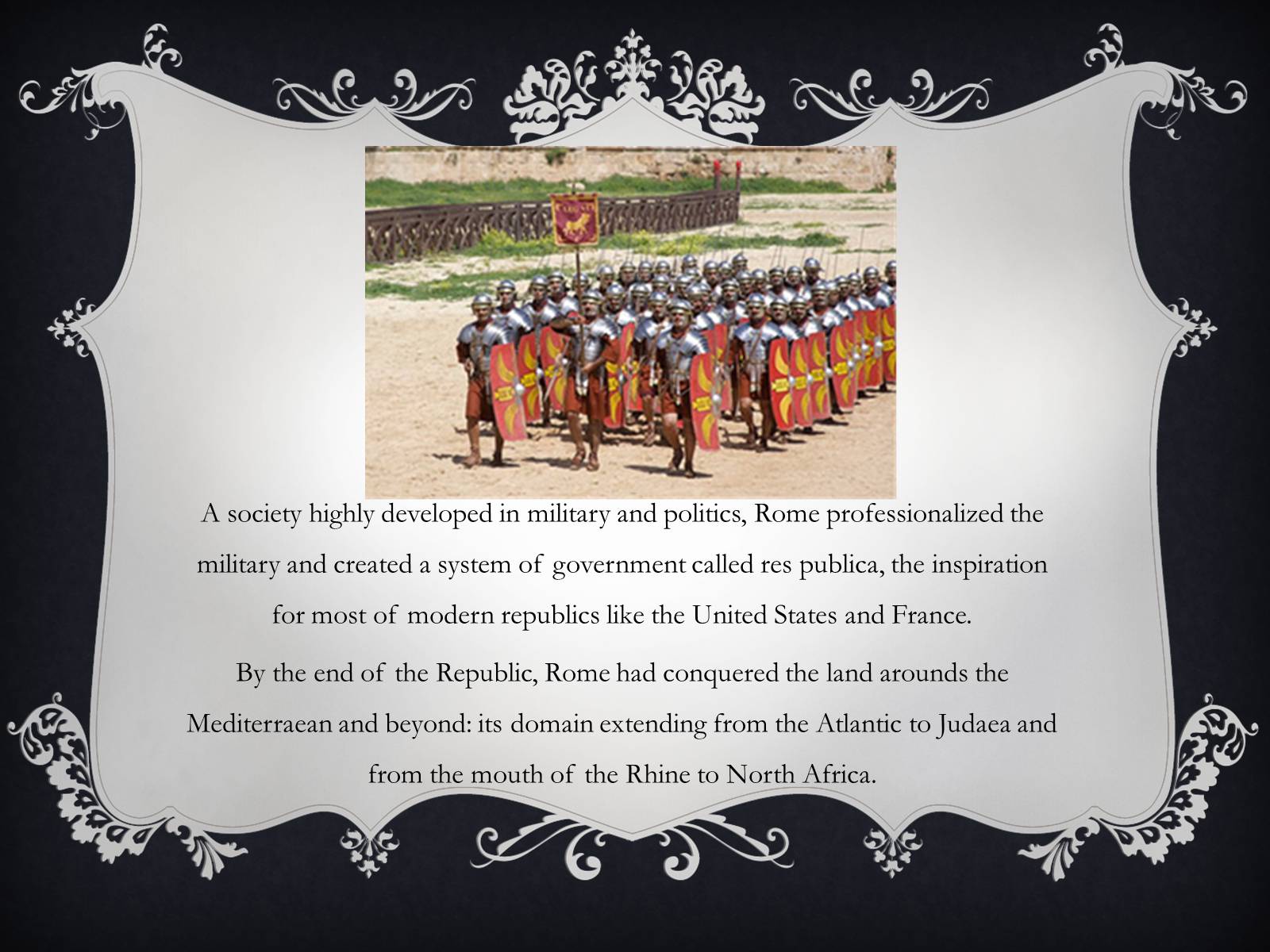
A society highly developed in military and politics, Rome professionalized the military and created a system of government called res publica, the inspiration for most of modern republics like the United States and France.
By the end of the Republic, Rome had conquered the land arounds the Mediterraean and beyond: its domain extending from the Atlantic to Judaea and from the mouth of the Rhine to North Africa.
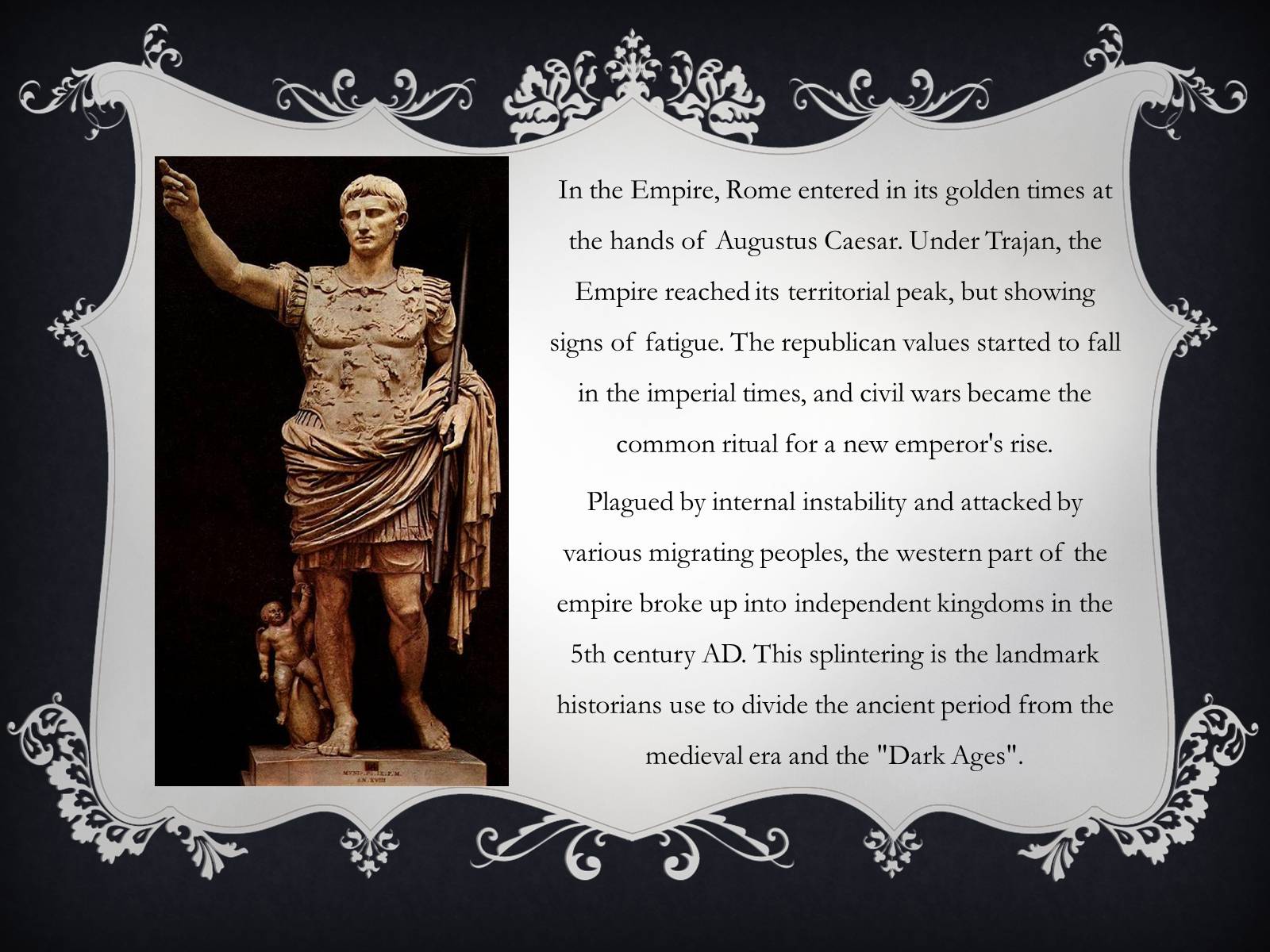
In the Empire, Rome entered in its golden times at the hands of Augustus Caesar. Under Trajan, the Empire reached its territorial peak, but showing signs of fatigue. The republican values started to fall in the imperial times, and civil wars became the common ritual for a new emperor's rise.
Plagued by internal instability and attacked by various migrating peoples, the western part of the empire broke up into independent kingdoms in the 5th century AD. This splintering is the landmark historians use to divide the ancient period from the medieval era and the "Dark Ages".
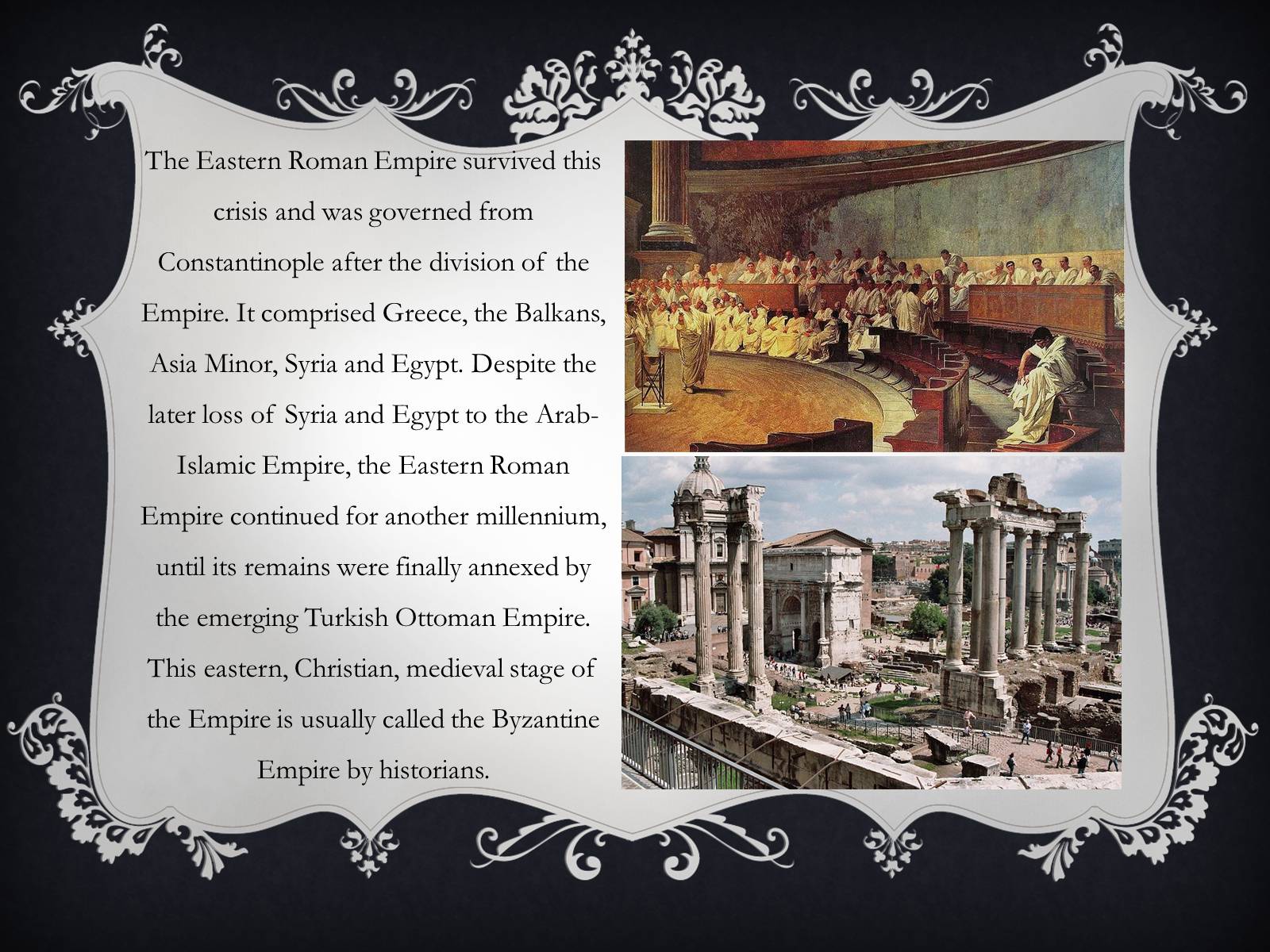
The Eastern Roman Empire survived this crisis and was governed from Constantinople after the division of the Empire. It comprised Greece, the Balkans, Asia Minor, Syria and Egypt. Despite the later loss of Syria and Egypt to the Arab-Islamic Empire, the Eastern Roman Empire continued for another millennium, until its remains were finally annexed by the emerging Turkish Ottoman Empire. This eastern, Christian, medieval stage of the Empire is usually called the Byzantine Empire by historians.
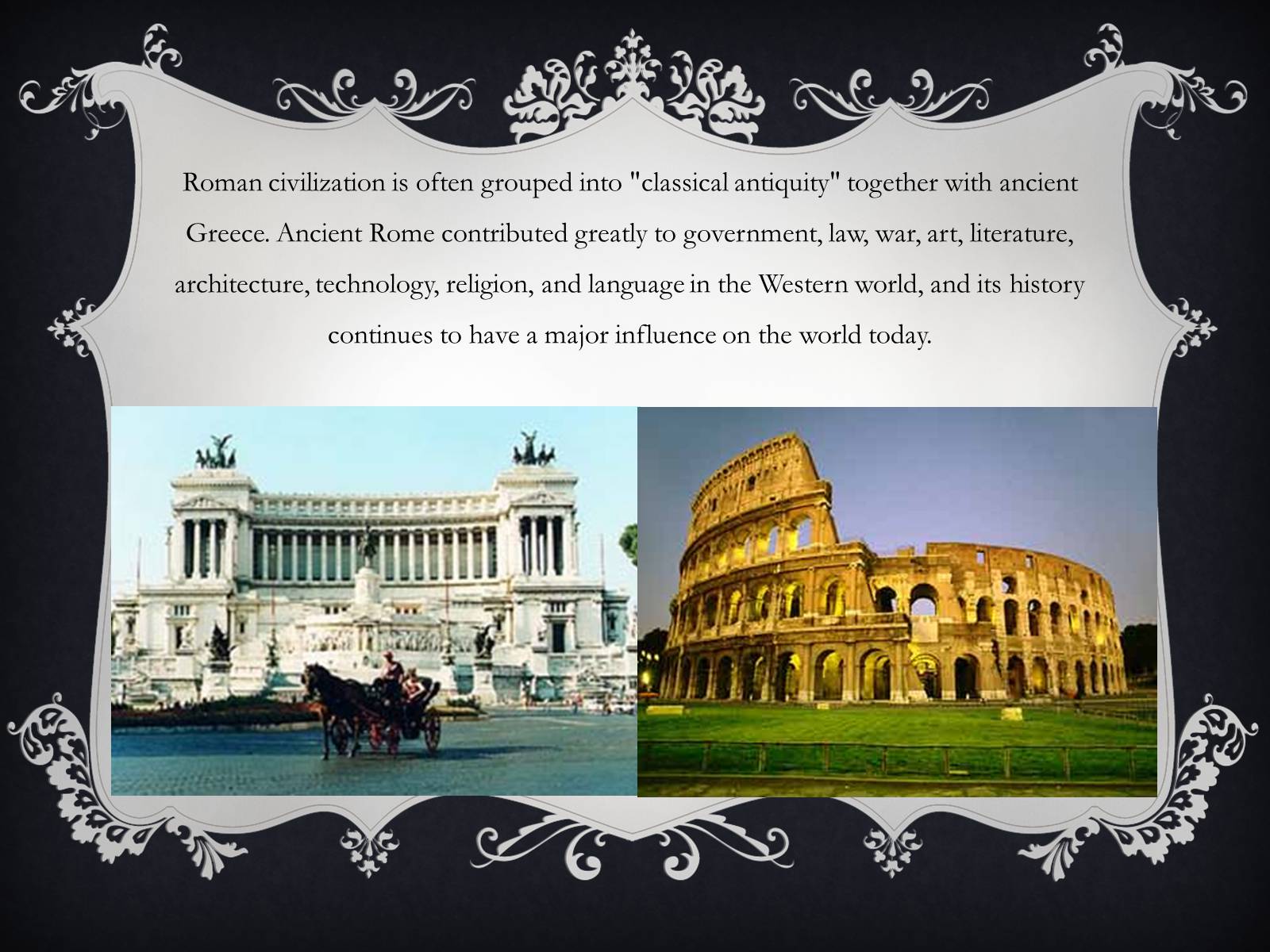
Roman civilization is often grouped into "classical antiquity" together with ancient Greece. Ancient Rome contributed greatly to government, law, war, art, literature, architecture, technology, religion, and language in the Western world, and its history continues to have a major influence on the world today.
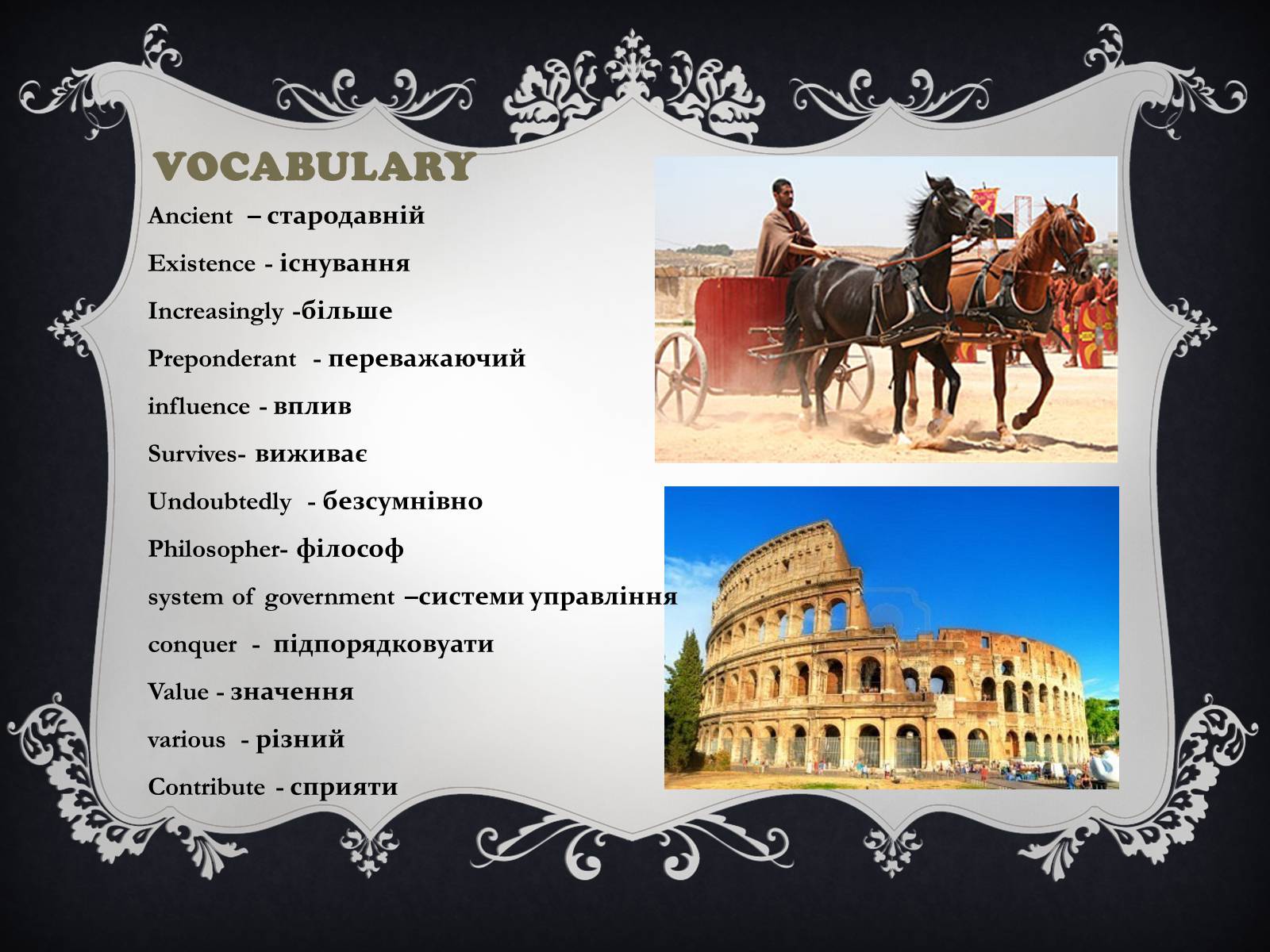
vocabulary
Ancient – стародавній
Existence - існування
Increasingly -більше
Preponderant - переважаючий
influence - вплив
Survives- виживає
Undoubtedly - безсумнівно
Philosopher- філософ
system of government –системи управління
conquer - підпорядковуати
Value - значення
various - різний
Contribute - сприяти
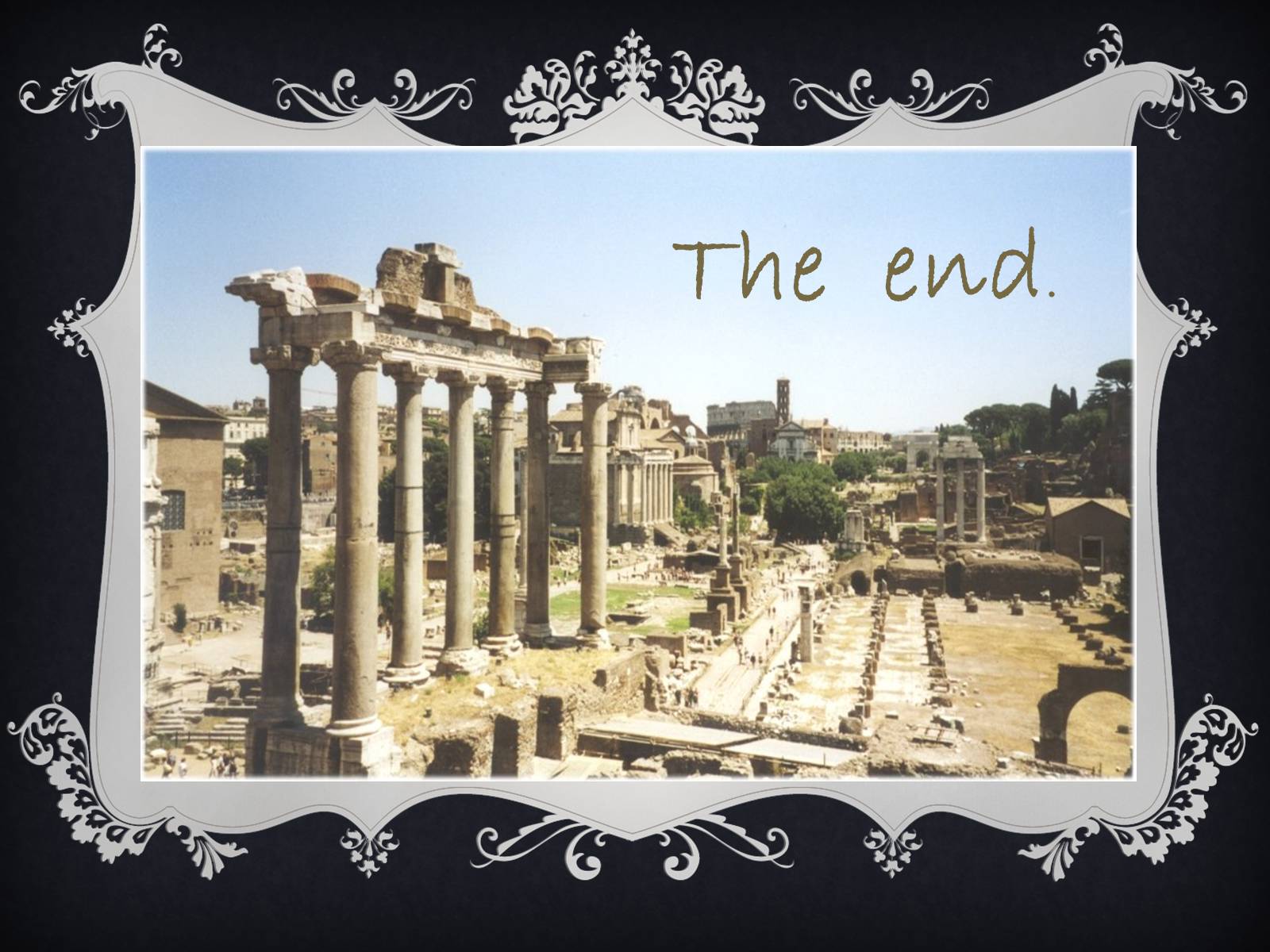
The end.